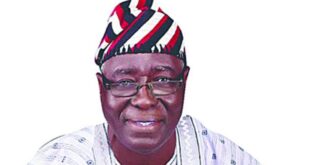FCT, ABUJA, NIGERIA – The Inspector-General of Police (IGP), Kayode Egbetokun, has issued a firm directive to officers of the Nigeria Police Force (NPF) to avoid meddling in land disputes and other civil cases, warning that such involvement tarnishes the integrity of the Force.
Speaking in a video message posted on the Force’s X handle on Thursday, September 24, 2025, Egbetokun stressed that officers “have no business escorting parties for land recovery.”
He noted that the NPF is not an enforcer of private business interests and warned that any officer found culpable will face disciplinary sanctions.
“Let me reiterate without ambiguity; the Nigeria Police Force is not and will never become an enforcer for private interests. Officers have no business escorting parties for land recovery business, disrupting legally existing occupations, or meddling in civil cases without a demonstrable criminal element.
‘”Every such incident erodes the neutrality of the Force and opens us up to disrepute. The line must be clear and any officer who crosses it must face disciplinary consequences”, the IGP declared.
Beyond the warning, Egbetokun also unveiled a new era of policing with the official launch of a nationwide training programme on the use of the Criminal Database Systems, which he described as the “nervous system of 21st-century Nigerian policing.”
Speaking at the opening ceremony in Abuja, he emphasized that the initiative represents a shift from reactive policing to a proactive, intelligence-led model anchored on data, predictive analysis, and global integration.
“This training is more than an exercise. It is a declaration that the NPF has stepped into a new era. Without data, there is no memory. Without memory, there is no justice. But with data, there is no hiding place for criminals”, he said.
The IGP lamented that poor record-keeping and fragmented intelligence had long hindered policing in Nigeria, often leading to stalled prosecutions and eroded public trust.
He assured that the new system would ensure that every arrest is recorded, every case documented, and every officer held accountable.
“For too long, Nigerian policing has been limited by weak records, scattered files, and fragmented intelligence. That era ends today. With the support of the Federal Government and our partners, we are building a system where every arrest is recorded, every case is documented, and every officer is accountable. No case will vanish into forgotten files. No conviction will disappear into silence,” he stressed.
The police chief further charged officers undergoing the training to take their roles seriously, reminding them that they would serve as custodians of the nation’s crime data across divisions, zones, and states.
“Every case you enter, every record you preserve, every link you verify, will strengthen justice in our nation. You are not merely handling files; you are safeguarding the future”, he told them.
Egbetokun also highlighted that the Criminal Database System would align Nigeria with global policing standards through integration with INTERPOL, the African Union Border Programme, and UNODC frameworks.
“Through integration with INTERPOL, the African Union Border Programme, and UNODC frameworks in West Africa, we are ensuring that criminal offenders in Nigeria will no longer find sanctuary abroad.
“When a trafficker is convicted in Nigeria, the world must know. When a weapon is seized at our borders, its trail must echo across continents”, he concluded
 Startrend International Magazine For Your Latest News And Entertainment Gists
Startrend International Magazine For Your Latest News And Entertainment Gists





